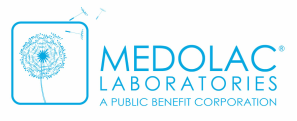By: Elena Medo, CEO Medolac
How cooperatives fit in as partners in community, regional and global initiatives is not always well understood, but we think that needs to change. Their ability to address social and economic challenges is powerful, not only for their membership but those who benefit from their goods or services. A few weeks ago, a UN panel for international development heard a strong case to embrace cooperatives as partners.
“Cooperatives can do anything a for-profit business can do, with one caveat: they can do it better,” said panelist Mike Beall, president and CEO of National Cooperative Business Association. “They can do it ethically, they can do it by not overly seeking profit, and they can do it by involving community.”
Our motivation for developing the Mothers Milk Cooperative, the first cooperative of its kind is twofold. First, we saw the cooperative as a way to increase the supply of human donor milk to address the tragic shortage for premature infants in clinical settings that has existed for many years. Second we saw an opportunity to provide a voice and fair compensation for donors as coop members.
The Mothers Milk Cooperative continues to grow at more than 15% per month and has become one of the largest milk banks in the USA in its first year of existence. For the first time, we now see a viable pathway that has the potential to end the chronic shortage of human milk for premature infants. Without the cooperative model this would not be possible.
The impact that cooperatives can have on community efforts is too great to ignore. Over the past months we have been working hard to develop new partnerships that reflect our vision to promote breastfeeding, access and economic inclusion. Co-ops, like the Mothers Milk Cooperative, can become key partners in community efforts to improve the health and well being of infants suffering from lack of access to donor milk and to encourage the social and economic empowerment of breastfeeding mothers.
“Cooperatives can do anything a for-profit business can do, with one caveat: they can do it better,” said panelist Mike Beall, president and CEO of National Cooperative Business Association. “They can do it ethically, they can do it by not overly seeking profit, and they can do it by involving community.”
Our motivation for developing the Mothers Milk Cooperative, the first cooperative of its kind is twofold. First, we saw the cooperative as a way to increase the supply of human donor milk to address the tragic shortage for premature infants in clinical settings that has existed for many years. Second we saw an opportunity to provide a voice and fair compensation for donors as coop members.
The Mothers Milk Cooperative continues to grow at more than 15% per month and has become one of the largest milk banks in the USA in its first year of existence. For the first time, we now see a viable pathway that has the potential to end the chronic shortage of human milk for premature infants. Without the cooperative model this would not be possible.
The impact that cooperatives can have on community efforts is too great to ignore. Over the past months we have been working hard to develop new partnerships that reflect our vision to promote breastfeeding, access and economic inclusion. Co-ops, like the Mothers Milk Cooperative, can become key partners in community efforts to improve the health and well being of infants suffering from lack of access to donor milk and to encourage the social and economic empowerment of breastfeeding mothers.

 RSS Feed
RSS Feed